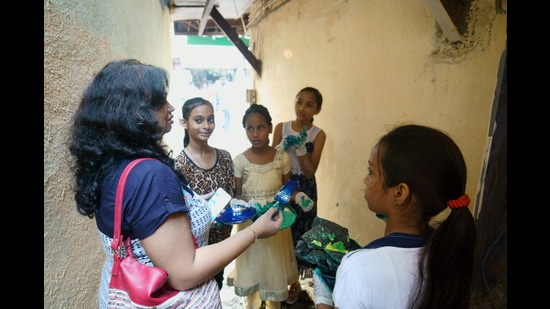Where are India’s women leaders?
Women are less involved when it comes to participation in campaigns and contacts with public officials. Women candidates also have less education and experience, on average, compared to male candidates. There are also different societal expectations from political leaders of different genders
With International Women’s Day approaching on March 8, the United Nation’s upcoming Generation Equality Forum aims to focus on feminist movements and leadership as an action agenda. However, in India, climbing the ladder of political leadership remains a deeply inequitable enterprise. While reservations have improved women’s participation, much of the day-to-day functioning of Indian politics remains a man’s game.

At the national-level, while the 2019 Lok Sabha elections saw an increase in representation of women representatives, only 14% of the Members of Parliament (MPs) in India are women. At the state-level, women make up only nine per cent of the elected candidates of state legislative assemblies. Globally, India ranks 122 out of 153 countries when it comes to women’s representation in parliament, according to the World Economic Forum’s Global Gender Gap Report 2020.
Women’s representation in panchayats in India, on the other hand, is relatively better, thanks to the reservations brought in by the 73rd constitutional amendment that ensure one-third of leadership positions for women. However, this increased representation masks the barriers that women face in getting elected or while in office.
Evidence suggests that women candidates in India differ from their male counterparts in a number of ways. First, women candidates are more likely to come from political or wealthy families. A frequent path to panchayat leadership for women is belonging to political families where men are unable to serve due to a reserved seat. This pattern is also reflected at the national level. 42% of women MPs come from political families compared to 15% of male MPs. This could be because campaign expenses required to run for office tend to favor more well-off families and being embedded in political families ensures greater resources. Women candidates are also assumed to have an added sense of electability when their family members are popularly known.
Second, women candidates, unlike male candidates, are much more likely to run in SC/ST reserved seats than general seats. At the panchayat level, reservations for women can unintentionally make it difficult for women to contest general seats, which have come to be seen as seats for men.
Third, political aspirations are notably different between men and women. In one study of panchayat chiefs in Karnataka, less than three per cent of women candidates contested for a second term. Studies also reveal a “backlash effect” in states with higher gender bias, where the election of women leads less women to run in future cycles.
Much of the absence of women in political leadership stems from gender gaps in overall political participation. While female voter turnout has even surpassed men’s in some states, women’s political involvement in non-electoral activities lags behind.
Women are less involved when it comes to participation in campaigns and contacts with public officials. Women candidates also have less education and experience, on average, compared to male candidates. There are also different societal expectations from political leaders of different genders. Some research has shown that people can be less satisfied with women leaders even though they are shown to produce equal or greater results.
The gender gap in contestants collides with growing literature highlighting the benefits of women’s leadership. Evidence shows that having women leaders leads to improved provision of public goods and greater addressal of women’s issues, such as in health and education. There is also consensus that local-level reservations have increased bargaining power and improved the situation of women overall in India. This includes improving political participation — women have been shown to speak up more in village meetings when the panchayat head is a woman.
These results align with the larger discourse on women leadership, particularly in light of the Covid-19 pandemic. Recent research shows that countries with governments headed by women have arguably managed the pandemic better. In the United States too, research suggests that states with women governors had fewer Covid-19-related deaths. Yet, despite yielding improved outcomes, a recent study suggests that women are being left out of decision making at all levels of Covid-19 response structures.
An often-ignored quality of women leaders, which may also explain their more empathetic Covid-19 response, is their “soft skills”. Women tend to outperform men in areas such as coaching others and building trusting relationships.
It is not as though India is not ready for gender equality. In a recent international opinion survey, a large majority (76%) of respondents in India think the government “should do more” to promote gender equality. Interestingly, 49% of respondents want the government to “reform laws to promote equality between women and men and end discrimination against women”.
Perhaps it is time that longstanding promises from political parties to pass the decades-in-waiting Women’s Reservation Bill be met. The idea may be radical, but if evidence on India’s reservation system for women in local panchayats is considered, then it may require affirmative action to give women the space they deserve in Indian policymaking.
Soumya Kapoor Mehta is the head and Steven Walker is a consultant at the Initiative for What Works to Advance Women and Girls in the Economy (IWWAGE), Krea University
The views expressed are personal.



